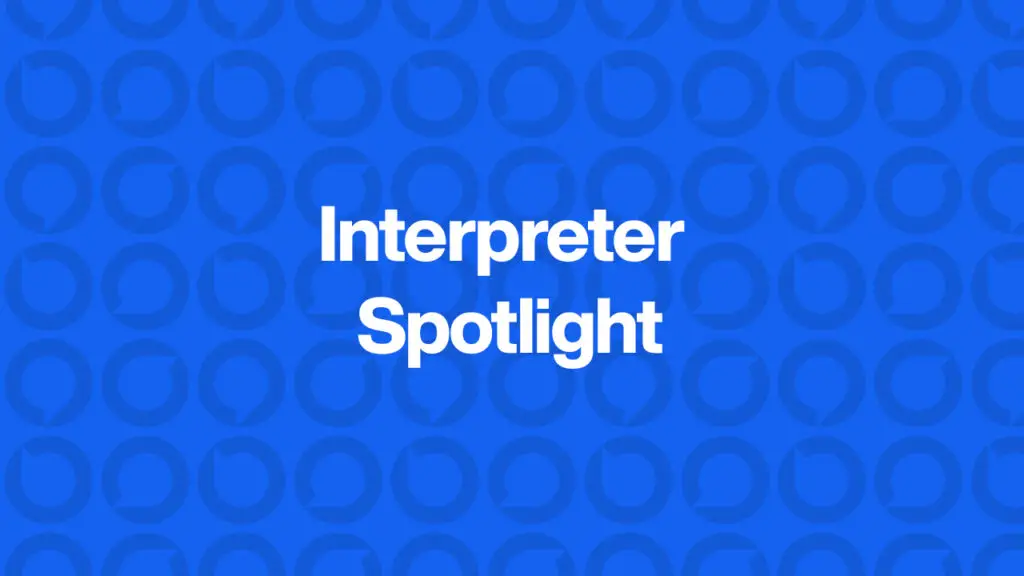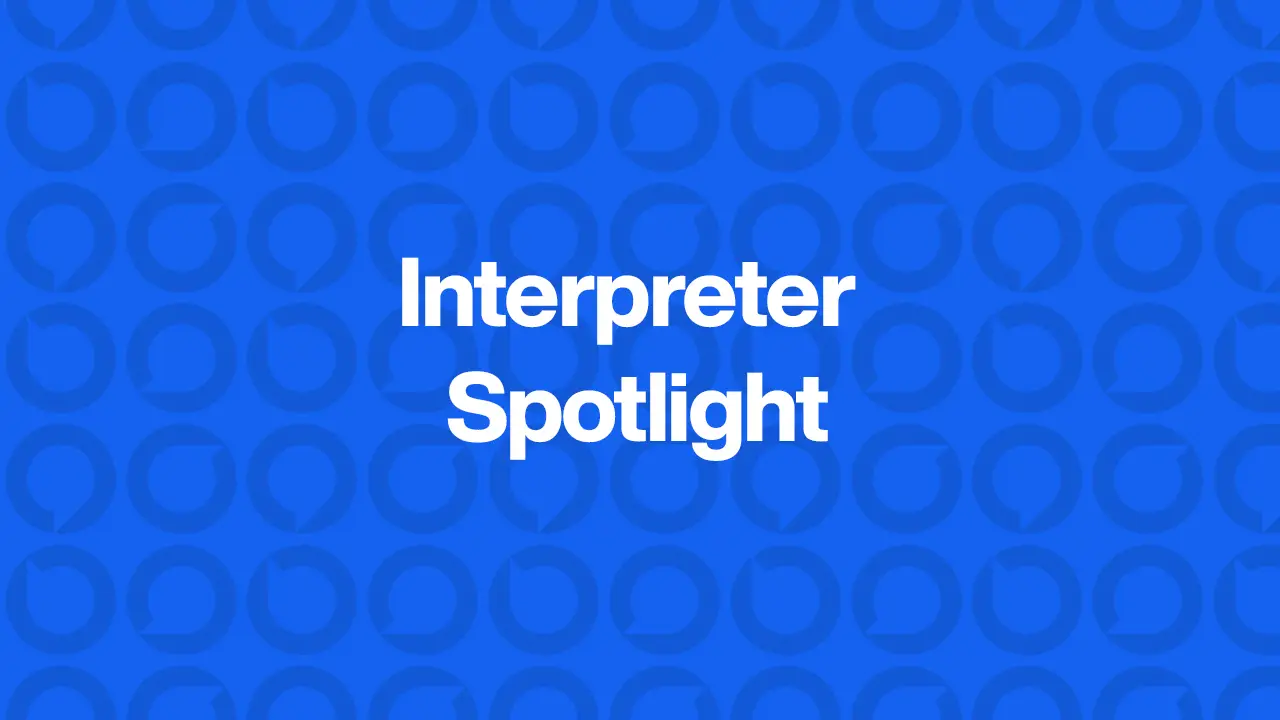Meet the Rwandan interpreter providing medical interpretation for refugee populations in the US as a Kinyarwandan and Kinyamulenge medical interpreter.
Each month at Boostlingo we highlight one of the interpreters assisting customers as part of the Boostlingo Professional Interpreter Network. These 13,000 professionals are located all over the globe and represent over 300 languages.
This month, meet Pascal Habimana located in Rwanda. Pascal is a medical interpreter for Kinyarwandan and Kinyamulenge who works with One World Global Services. His calls primarily involve refugees and immigrants who are receiving services in the United States, and we couldn’t facilitate that valuable work without him.
So Pascal, how did you become an interpreter?
My journey as an interpreter started long ago.
Kinyarwandan is my mother tongue. But Kinyamulenge, so it has a similarity, because simply because it’s spoken in Congo, it has a similarity to Kinyarwandan. Yes, English is something that I learned at school. I had a goal to speak English — good English. So I had to work hard. I was really ambitious about that.
It was just public education. But of course, my country is not an English country, you see. Because I was motivated, I had to work hard. As they say, in English, “practice makes perfect.” So I really had to work hard because I had a goal. And one of the goals just to use English of course just to support myself and also be able to communicate with different cultures.
The first five years, I was doing a volunteer work with an organization. I was just doing it for the organization, just helping people, different people from different countries. But then after some time, I stopped the volunteering work.
And then I said, “Okay, let me see now if I can work or do something just to support myself.” So that’s when I felt like okay, I was doing this here in this organization, so is there somebody who needs me out there? So now I started searching for work.
I got an offer, I got hired, but at that time they said, okay [we need you for] medical. It was my first time to do that. I felt like because I know English, if I go and just focus in terminology, medical terminologies and so forth, so I feel like okay, maybe I’m just going to get there. Yeah, that’s what I did. I got some documents, I just had to learn, practice a lot.
What has it been like to make the switch to medical interpreter?
When you begin in this field, you meet with different things that train you a lot. You know, sometimes you don’t know something, you’re talking to the provider, the provider explains and tells you this is exactly what it means.
Because, for example, my language Kinyarwanda is a little bit limited in vocabularies when it comes to the parts of the body. It’s really strange, because outside, of course, I can know, this is the hand, this is my head, but parts inside the body, we don’t have these vocabularies. So yeah, we learn, we try our best, and it’s just really going well, so far.
It’s very emotional, especially when you have to reveal information to the patient. For example, if they did blood work, and maybe the results are really not good. Sometimes it’s shocking when the provider tells you okay, this is the results. Yourself, you feel like, “This is too much.” And then revealing that information to the LEP[Limited English Proficiency Patient]? Yeah, it can be sometimes emotional.
But of course, because an interpreter is part of the medical team, you have to master your boldness and just share the information. So that’s the hardest part, especially when you have to tell the LEP, “Okay, the results are really not good.” It’s really the hardest part.
How do you cope with those intense emotions from your work?
Yeah, sometimes at the end of the call I feel really bad. Sometimes I keep on thinking about the person. If the person is going to take like medication for a long time, sometimes I ask myself, “If I were that person, how would I react?” So, it just keeps coming in my mind. And as medical interpreter, you don’t only reveal that information to the LEP, but also in the future, you might again meet that LEP because the same call might come to you.
Still, I try to master my boldness and just talk to myself: “Okay, I did a great job. I tried to help the person. The rest of the medical team also is going to try to help that person.”
Over the weekend, sometimes [I] just get out. I’m a Jehovah’s Witness. Sometimes I go out to the ministry to preach over the weekend, and so on. I have my harmonica here to play music. Music is good. It soothes the soul; it makes you happy.
What is your favorite part of being an interpreter?
My favorite part for me is being able to help two people to communicate together. I make sure that this side is satisfied, and this side is satisfied. So, when the LEP is happy, when the provider or the client also is happy, I feel happy, too. I feel a sense of satisfaction.
I talked to some people several times, you see, like, for a period of three to four months. So some of them, they know me. When they hear like, somebody is calling and it’s Pascal coming, to here, you know, they’re laughing. They’re happy. I feel like wow, this is good.
And sometimes when I introduce myself, just as an interpreter, I’ll just call them friends. Because it’s been a while, you know, talking together. So, they have challenges for sure. But of course, also when you lend your hand to help it’s really beautiful.
Being an interpreter is connected to the love that you have for people, because interpreting is not a simply getting your brain involved, but your heart also should be involved. And especially because most of the time I’m working in a medical setting.
When a person asked me, how is that you do that? What do you like about it? I just like being able to help somebody and that person gets really satisfied. He’s going back home happy. To me, that’s the best part of interpretation. When I reach my goal of making the LEP and making the client happy — this is beautiful.
The world is a world of business for sure. But also, there are many problems out there. So, if a friend or a person could get somebody who can help, just like to make his life a little better, that will be a great contribution.
But these friends because of being limited in English, they’re really struggling. You, see? So, I just realized there are many challenges out there. And these challenges, people really need somebody who can help them.


